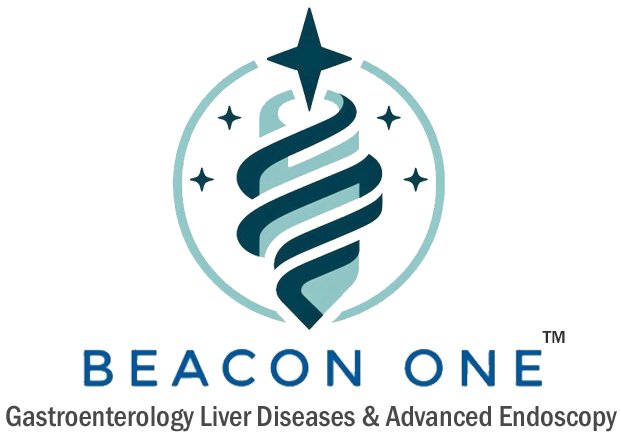Unblocking Pathways: Understanding and Accessing ERCP in Nagpur
When issues arise in the delicate network of bile and pancreatic ducts, pinpointing the problem and providing targeted treatment requires a specialized approach. In Nagpur, patients have access to ERCP, or Endoscopic Retrograde Cholangiopancreatography, a sophisticated procedure that combines the power of Endoscopy and X-ray technology to diagnose and treat disorders of the bile ducts, gallbladder, pancreas, and liver. This advanced technique is a vital tool in the hands of experienced Gastroenterologists and Endoscopy Specialists in the city.
What is ERCP?
ERCP is a unique procedure that uses an endoscope (a thin, flexible tube with a camera and light) to reach the opening of the bile and pancreatic ducts in the duodenum (the first part of the small intestine). Once the endoscope is in place, a thin tube (catheter) is threaded through it into the ducts, and a special contrast dye is injected. X-ray images are then taken, outlining the ducts and revealing any blockages, strictures, or other abnormalities.
How ERCP is Performed: A Combined Approach
The ERCP procedure is typically performed in a hospital or specialized Endoscopy center. Here’s a simplified overview:
- Preparation: You will be asked to fast for several hours before the procedure. Your doctor will provide specific instructions about your medications.
- Comfort: You will receive a sedative and pain medication through an IV to ensure you are relaxed and comfortable, often not remembering the procedure itself. Your throat may also be numbed with a spray.
- The Endoscopic Phase: The endoscope is gently guided through your mouth, down the esophagus and stomach, and into the duodenum, until the opening of the bile and pancreatic ducts (the papilla) is located.
- The X-ray Phase: A catheter is inserted through the endoscope into the desired duct (bile or pancreatic), and contrast dye is injected. X-ray images are immediately captured to visualize the internal structure of the ducts.
- Therapeutic Interventions: If a problem is identified, the physician can often perform therapeutic procedures during the same ERCP session.
Why ERCP is Essential: Diagnosing and Treating Complex Conditions
ERCP is crucial for diagnosing and treating a range of conditions affecting the bile and pancreatic ducts, which can often be related to Liver Diseases or cause significant digestive issues. It is commonly used to investigate and manage:
- Bile Duct Stones (Choledocholithiasis): Stones that have moved from the gallbladder into the bile duct can cause blockages, leading to jaundice, pain, and infection. ERCP is highly effective for identifying and removing these stones.
- Bile Duct Strictures: Narrowing of the bile ducts, often caused by inflammation (like from chronic pancreatitis), gallstones, or tumors, can impede bile flow. ERCP allows for visualization of the stricture and often dilation or placement of a stent to keep the duct open.
- Pancreatic Duct Strictures and Stones: Similar issues can affect the pancreatic duct, leading to pain and pancreatitis. ERCP can help diagnose and treat these blockages.
- Tumors: ERCP can help visualize tumors in the bile ducts or pancreas, and tissue samples (biopsies) can be obtained during the procedure to diagnose cancer.
- Unexplained Jaundice: When jaundice occurs due to a suspected blockage in the bile ducts, ERCP is often used to identify the cause and relieve the obstruction.
- Complications of Pancreatitis: ERCP can be used to address ductal issues that contribute to or result from pancreatitis.
- Bile Leaks: Following surgery on the gallbladder or bile ducts, ERCP can help identify and seal bile leaks.
For patients with Liver Diseases, particularly Cirrhosis, who develop jaundice or other symptoms suggestive of bile duct obstruction, ERCP is an invaluable tool for diagnosis and intervention. A Hepatologist may work in conjunction with the Gastroenterologist or Endoscopy Specialist performing the ERCP to manage the patient’s overall condition.
Therapeutic Capabilities: Fixing Problems from Within
One of the major advantages of ERCP is its therapeutic potential. During the procedure, the Endoscopy Specialist can perform various interventions to treat the identified problems:
- Stone Removal: Using specialized tools like balloons or baskets to capture and remove stones from the bile or pancreatic ducts.
- Sphincterotomy: Making a small incision in the muscle that surrounds the opening of the bile and pancreatic ducts (sphincter of Oddi) to facilitate the removal of stones or improve drainage.
- Stent Placement: Inserting a small plastic or metal tube (stent) into a narrowed duct to hold it open and ensure proper flow of bile or pancreatic fluid.
- Dilation: Using a balloon to stretch open a narrowed duct.
- Tissue Sampling: Obtaining biopsies from suspicious areas for microscopic examination.
Accessing Expert ERCP in Nagpur
ERCP is a complex procedure that requires significant skill and experience. In Nagpur, ERCP is performed by highly trained Gastroenterologists, Hepatologists, or Endoscopy Specialists who have dedicated expertise in this advanced technique. Several well-equipped hospitals and Endoscopy centers in the city offer ERCP services, providing local patients with access to this crucial diagnostic and therapeutic option.
If your doctor suspects a problem with your bile or pancreatic ducts, they may recommend an ERCP and refer you to a qualified specialist.
Preparation and Recovery
Preparation for ERCP typically involves fasting. You will receive detailed instructions from your healthcare team. After the procedure, you will be monitored in a recovery area. It’s common to experience some bloating, gas, or a mild sore throat. The most serious, though uncommon, complication is pancreatitis, so you will be monitored for signs of this. You will need someone to drive you home due to the sedation.
ERCP provides a vital service for patients facing disorders of the bile and pancreatic ducts. Through the combined expertise of Gastroenterologists, Hepatologists, and Endoscopy Specialists utilizing this advanced Endoscopy technique, accurate diagnosis and effective, minimally invasive treatments are possible, offering hope and relief for those affected by these complex conditions and related Liver Diseases.

